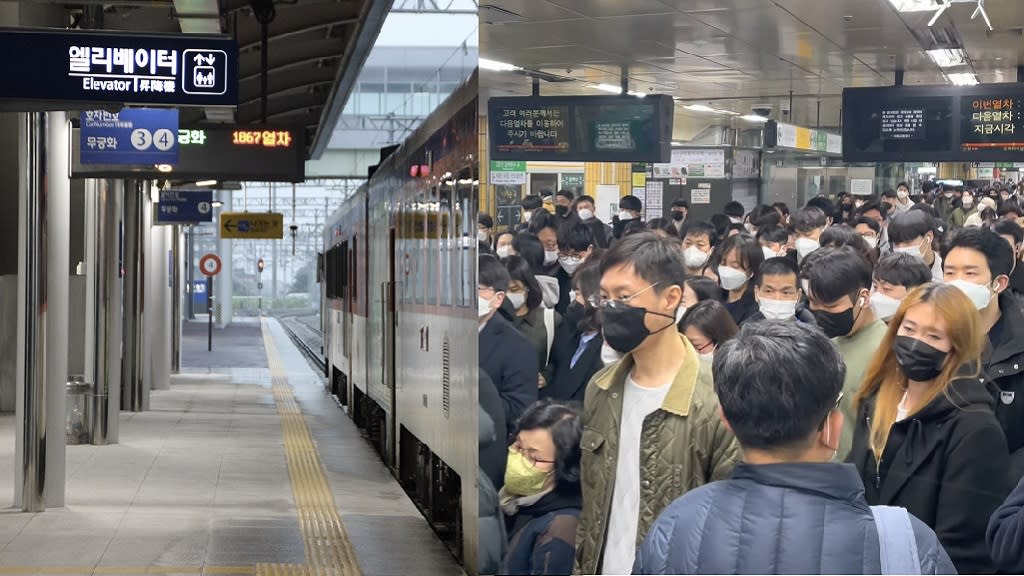New S. Korea study reveals alarming link between commuting and mental health

[Source]
A groundbreaking study conducted in South Korea sheds light on the detrimental impact of lengthy commutes on mental health.
Unveiling the research gap: While the frustrations of lengthy commutes are universally acknowledged, particularly with traffic, noise and air pollution, there has been a significant gap in understanding the health implications, especially in Asian countries.
South Korea, known for having some of the lengthiest commutes and high rates of depression among OECD nations, served as the backdrop for the comprehensive study determining connections between daily travel and mental well-being.
Core findings: Conducted by a team led by Dr. Lee Dong-wook from Inha University Hospital, the study delved into data from 23,415 individuals aged 20 to 59, sourced from the World Health Organization's well-being index.
Trending on NextShark: Filipino American nurse wins $41 million retaliation lawsuit against Kaiser
The study, published in the Journal of Transport & Health, revealed that those who spend over an hour commuting daily are 16% more likely to experience depressive symptoms than their counterparts with shorter commutes. The average daily commute is 47 minutes, which is equivalent to nearly four hours per week.
Demographic nuances: Findings showed that for men, the connection between prolonged commutes and depressive symptoms was strongest among the unmarried, those working over 52 hours per week, and those without children. In contrast, women facing extended commute times were most vulnerable if they belonged to the low-income bracket, were shift workers, or were mothers.
The study identified socio-economic conditions as influential factors in commuters' mental health. The researchers noted, however, that while they adjusted for various factors such as age, income and occupation, they couldn't account for individual risk factors like family history. The study also predates the widespread shift to remote work prompted by the pandemic.
Trending on NextShark: Manila crowned world's top city destination for 2023
Addressing the issue: The study calls for tailored approaches that emphasize the need for interventions that address specific demographic features such as age, gender and income to effectively mitigate the adverse impact of commuting time on depressive symptoms. The study also recommends improved transportation infrastructure to reduce commute times and enhance overall mental health, particularly among low-income workers.
Download the NextShark App:
Want to keep up to date on Asian American News? Download the NextShark App today!
